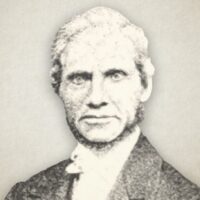
Twenty-Four Lectures On The Book Of Revelation
My reasons for giving and now printing the following Lectures will appear in the Lectures themselves. There is not anything that so concerns us as the Holy Scriptures; they do with us and for us what nothing else can. They make us wise unto salvation; and we cannot be too conversant with the Holy Scriptures. And knowing that it falls to the lot of many not to have very much time to search the Scriptures, I hope these Lectures may be a help to such.
This Book of the Revelation, like other books of the Bible, was intended not merely for the learned few, but for Christians at large, and comes under the same rule of interpretation as other books of the Bible, namely, that of explaining Scripture by Scripture. I may here just remind the reader to notice the structure of the book; that the subjects for the most part are ranged as it were in columns side by side, and that the inspired writer takes up one aspect of a subject and goes on with the same to the end, and then goes back again and again to the beginning of the gospel dispensation. Hence the twenty-first chapter goes back to the beginning of the Christian dispensation, and commences by showing the exchange of the Jewish heaven and earth for the Christian heaven and earth, called “the new heavens and new earth, and no more sea;” evidently meaning no more trouble. For by the new heavens and new earth shall be everlasting joy, and sorrow and sighing shall flee away; so there shall be no more sea; whereas the Jewish heaven and earth, according to Psalm 46, were carried away into a sea of trouble, and there they still remain.
We read of but two leading fallen stars in this book. There could not be more than two, as these two stars represent apostate churches, and there could be but two apostate churches, namely, the Jewish and the Christian. Here are Zechariah’s two women from the ephah, with the wind of false doctrine in their wings. I have a hope that I have been enabled in these Lectures to give the main drift of the meaning of this Book of Revelation.
The reader ought to note that this Book of Revelation is a summary,—a summing up, as it were, of the whole of the Holy Scriptures, and contains in substance not anything which is not contained in the previous parts of the Holy Scriptures.
It has been said that an humble individual like myself ought not to have meddled with such a mysterious book, and that had I been a wiser man, I should have let it alone, especially as certain characters “rush in where angels fear to tread.” The third verse of the first chapter is to me a perfectly satisfactory answer to this and all such kinds of objections:—“Blessed is he that readeth and they that hear the words of this prophecy, and keep those things which are written therein: for the time is at hand.” Then if God command and bless, who is he that shall reverse it?
The reader would do well to read each chapter in the Book of Revelation, and then read the Lecture upon it; as,
to avoid making the Lectures too lengthy, I have quoted as little of the book as possible.
J. W.
New Surrey Tabernacle, Walworth Road,
October, 1870.
James Wells (1803-1872) was a Strict and Particular Baptist preacher. He was appointed the Pastor of the Borough Road Chapel (Surrey Tabernacle), a position he served for forty-two years.
JAMES WELLS' LIFE AND MINISTRY
JAMES WELLS ON THE REVELATION




